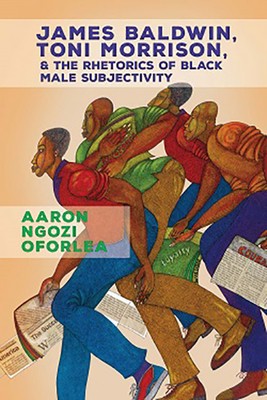
- We will send in 10–14 business days.
- Author: Aaron Ngozi Oforlea
- Publisher: Ohio State University Press
- ISBN-10: 0814213286
- ISBN-13: 9780814213285
- Format: 15.8 x 23.4 x 2 cm, hardcover
- Language: English
- SAVE -10% with code: EXTRA
James Baldwin, Toni Morrison, and the Rhetorics of Black Male Subjectivity (e-book) (used book) | bookbook.eu
Reviews
Description
In James Baldwin, Toni Morrison, and the Rhetorics of Black Male Subjectivity, Aaron Ngozi Oforlea explores the rhetorical strategies that Baldwin's and Morrison's black male characters employ as they negotiate discourses of race, class, gender, and sexuality. According to Oforlea, these characters navigate a discursive divide that separates limiting representations of black males in dominant discourses from a decolonized and empowered subjectivity. Specifically, the discursive divide creates an invisible boundary between how black subjects are seen, imagined, and experienced in dominant culture on the one hand, and how they understand themselves on the other.
Oforlea's book offers new analyses of the character dynamics in Baldwin's Go Tell It on the Mountain, Tell Me How Long the Train's Been Gone, and If Beale Street Could Talkand Morrison's Beloved, Song of Solomon, and Tar Baby. The black male characters in these novels encounter the discursive divide, or a cultural dissonance, when they encounter dominant representations of black male identities. They use these opportunities to construct a counter-discourse about black male subjectivity. Ultimately, Oforlea argues, these characters are strategic about when and how they want to appropriate and subvert dominant ideologies. Their awareness that post-racial discourses perpetuate racial inequality serves as a gateway toward participation in collective struggles for racial justice.EXTRA 10 % discount with code: EXTRA
The promotion ends in 20d.21:51:09
The discount code is valid when purchasing from 10 €. Discounts do not stack.
- Author: Aaron Ngozi Oforlea
- Publisher: Ohio State University Press
- ISBN-10: 0814213286
- ISBN-13: 9780814213285
- Format: 15.8 x 23.4 x 2 cm, hardcover
- Language: English English
In James Baldwin, Toni Morrison, and the Rhetorics of Black Male Subjectivity, Aaron Ngozi Oforlea explores the rhetorical strategies that Baldwin's and Morrison's black male characters employ as they negotiate discourses of race, class, gender, and sexuality. According to Oforlea, these characters navigate a discursive divide that separates limiting representations of black males in dominant discourses from a decolonized and empowered subjectivity. Specifically, the discursive divide creates an invisible boundary between how black subjects are seen, imagined, and experienced in dominant culture on the one hand, and how they understand themselves on the other.
Oforlea's book offers new analyses of the character dynamics in Baldwin's Go Tell It on the Mountain, Tell Me How Long the Train's Been Gone, and If Beale Street Could Talkand Morrison's Beloved, Song of Solomon, and Tar Baby. The black male characters in these novels encounter the discursive divide, or a cultural dissonance, when they encounter dominant representations of black male identities. They use these opportunities to construct a counter-discourse about black male subjectivity. Ultimately, Oforlea argues, these characters are strategic about when and how they want to appropriate and subvert dominant ideologies. Their awareness that post-racial discourses perpetuate racial inequality serves as a gateway toward participation in collective struggles for racial justice.

Reviews